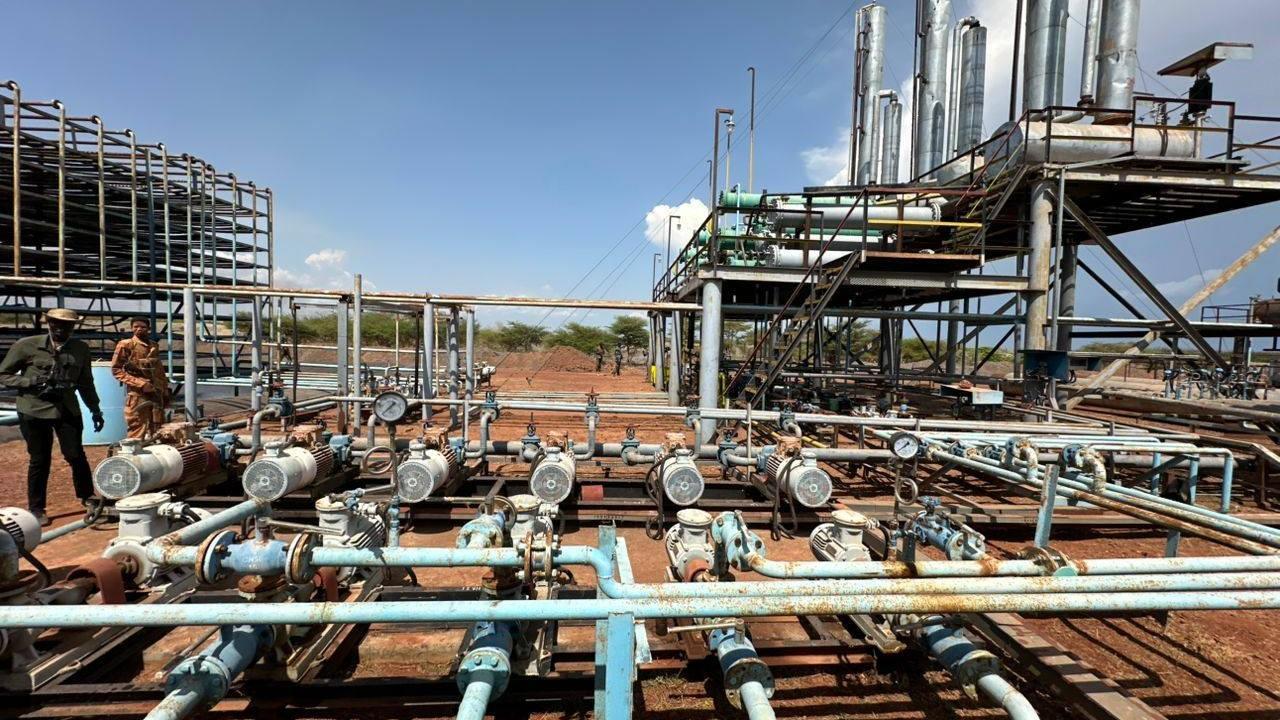Africa-Press – South-Sudan. The Minister of Agriculture in South Sudan’s Unity State, Gai Gatduel, has rejected a request from the Greater Pioneers Operation Company (GPOC) seeking to relocate people residing near the oil field to at least 45 km away.
The oil company submitted a formal letter last week to the state government demanding that residents in Rolriak, Norikur and Unity Oil field be relocated for safety to protect them from the harmful environmental impact of oil waste.
Mr. Gatduel rubbished the letter, saying that the request did not follow due process in the national government. The relocation demand also sparked strong reactions from residents in Unity State amid the farming season when people were preparing their farms for plantation.
The minister confirmed that his office had seen the letter written by the Minister of Presidential Affairs. However, he said, the relocation will negatively impact farming among residents who have embarked on agriculture amid a humanitarian crisis stemming from foreign aid cut by the American government.
For the last four years, Unity State was engulfed by a catastrophic flooding which has displaced people from their homes, destroyed trees, killed animals and affected farming across seven counties, including Mayom, Mayiandit, Panyijiar, Koch, Rubkona, Leer, and Guit. Insecurity triggered by ongoing political crises destroyed livelihoods and risked food security in the country.
Mr. Gatduel suggested that if the company wants people to relocate, scientific research needs to be conducted, and a secure place should be identified to accommodate residents, especially those in the Rolriak transit area.
“It is not the time to relocate them, they can come with their surveyors, they can find good land, where communities can be relocated. Because most of Southern Unity was occupied by the flood. There is nowhere to relocate them. Unless we relocated them to the North. From there, they can survey it or the government of Unity State can survey that land,” he said.
The directive to relocate residents was allegedly initiated by the Ministry of Petroleum, which ordered GPOC to urgently relocate communities that are residing near the oil facilities in Unity State. But Gatduel argued that the relocation should be a coordinated exercise.
“Secondly, Rolriak and other areas are areas of Unity State. It must be a policy in the government of Unity State whether the government will relocate them or do what for those communities. This will be the policy of the government. And it doesn’t need a forceful relocation, as written by the presidential affairs minister, that there is a need for urgent relocation,” he stated.
An order signed by Petroleum Authority Director General Joseph Eizbon cited health, environmental and security risks as reasons for the relocation.
Gatduel argued that if there is such a plan, it should be tabled in the national parliament, including in the Council of States.
“There are representatives of the people there. The minister cannot decide alone and send us the letter. That one, we can treat it as an individual decision. It is not a consensus.”
Local farmer, Peter Koang Biel, said land is a key factor in farming and sustainable agriculture, adding that the government should provide modern equipment to farmers instead of a forceful relocation to potentially infertile land.
“People have stopped the hard work they do have, where you can cultivate, and have available food in the house. Although people were partially farming, the previous and modern farming are completely different. In the current farming, people demand government support. We need the government to mitigate flooding so that we can have a place to cultivate. That is what we want”
Mother of four, Tabitha Nyakuer Patai, underscored the significance of farming, describing it as a major source of livelihood.
“Farming is a way to eat, because the UN is facing financial constraints. With the hunger we have seen as mothers, it is good you die in the bush while cultivating,” she affirmed.
The residents say oil extraction has a mixed impact on agricultural productivity and livelihood. The negative impact was mentioned, including environmental pollution, water and soil pollution, displacement, loss of lives and low crop yields.
In 2022, the prolonged political crisis in South Sudan led to 8.3 million people needing humanitarian assistance. 2.3 million South Sudanese refugees. And 1.7 million people are internally displaced.
Unity State has been the epicentre of oil-induced environmental pollution, resulting in devastating consequences like child deformities and livestock deaths. Oil companies have been accused of failing to fulfil their corporate social responsibilities.
For More News And Analysis About South-Sudan Follow Africa-Press






